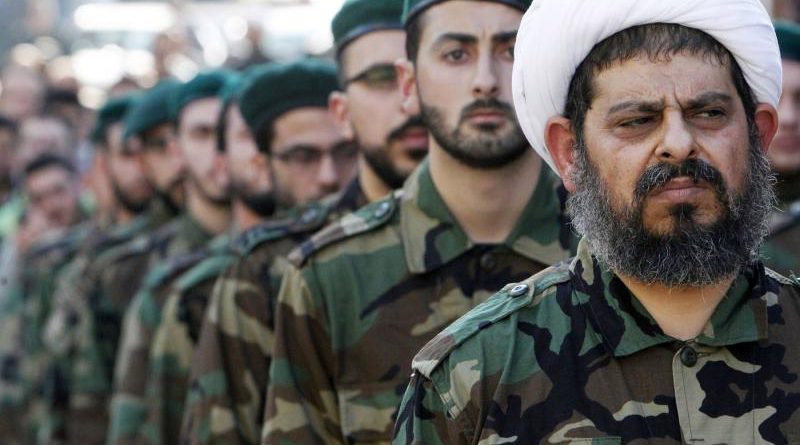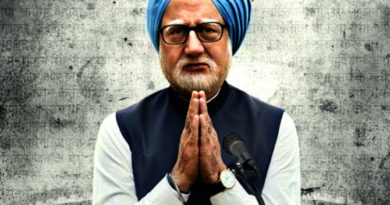OPINION: Why Hezbollah is losing the support of Lebanon’s Shia community
by Hanin Ghaddar
With Hezbollah’s growing regional activities, the Shia felt they had to pay the price.
Hezbollah’s adventurism in Syria and the wider region has alienated the support of many Lebanese Shia. The organization has also lost its military discipline and is under financial pressure, putting it in a precarious position.
Hezbollah currently faces four main challenges that have disillusioned previous supporters.
First, its ongoing involvement in the war in Syria has exhausted the organization militarily and undermined its mission statement to its support base. The heavy price paid by Lebanese Shia, without any tangible victory, has caused some to question their relation and loyalty to the militia and its ties with the Iranian regime.
Hezbollah originally emerged in south Lebanon in 1982, with substantial training and funding from the Iranian Islamic regime, with resistance as its core goal. However, its mission statement clearly adhered to the Islamic revolution and with a broad goal of creating an Islamic state in Lebanon. Gradually, its Shia ideology, commitment and support to Iran’s regional operations in the region – first in Iraq then in Syria – exposed its real goal: supporting Iran’s hegemony in the region. Its members and support-base constituted mostly of Shia fighters and loyalists, who eventually found themselves tied up in Iran’s regional plans. With the outbreak of the war in Syria, Hezbollah decided to intervene on behalf of Bashar al-Assad’s regime, sending thousands of fighters across the border.
The intervention has been costly. Not only has Hezbollah lost many fighters and commanders, but it has failed to achieve a clear-cut victory that it could use for propaganda purposes, such as the “divine victory” against Israel that was proclaimed in 2006. The main so-called achievement has been keeping President Assad in power, which has done little for Lebanese Shia. In contrast, many Lebanese were killed fighting for Assad in Syria, while at home the community feels more isolated than ever, as they lost access to and help from regional stakeholders, mainly the Gulf, which has a history of supporting Lebanon in times of need. With Hezbollah’s growing regional activities, the Shia felt they had to pay the price.
Second, Hezbollah’s rhetoric of resistance has lost much of its appeal.
The organization has taken on an increased regional role under its Iranian backer. Beginning in Syria, the group is now involved with pro-Iranian forces in Iraq and Yemen.
This expansion has led to considerable and frequent Israeli military responses, with air strikes and targeted killings causing major losses to Hezbollah and Iran’s Islamic Revolutionary Guards Corps (IRGC) in Iraq, Syria, and Lebanon. Despite its rhetoric of resistance, Hezbollah has not retaliated to any of the Israeli strikes on its bases.
Instead, both Hezbollah and Iran now prioritize regional hegemony over resistance against Israel. They are reluctant to sacrifice the significant investments they have made in their regional infrastructure means in a conflict with Israel, which could lead to major losses in their arsenal and infrastructure that they would struggle to replace immediately.
Third, Hezbollah’s military has lost its discipline and has weaknesses in its arsenal.
To sustain its involvement in Syria, Hezbollah needed to recruit tens of thousands of new fighters who lack the discipline and training of the group’s previous fighters.
Hezbollah now has a fighting force that has been infiltrated by disruptive elements that could easily go out of control. Whether the group’s leadership will have the time to establish discipline and control over its entire force remains to be seen, as it is overextended and could find itself in a conflict.
As for their arsenal, although they have started to develop a network of precision missiles, these are now more exposed to Israeli strikes and international pressure, because they constitute a serious danger on Israel’s infrastructure, and at the same time they endanger US regional allies.
Forth, Hezbollah is going through an unprecedented financial crisis due to the US sanctions on Iran.
This crisis is affecting Hezbollah’s capability to build its social and military. Most of their social services – such as health and welfare system – are no longer catering for the whole Shia community. Instead, they are only offered to the close circle of military personnel and high-ranking executives. Even the contractors that were hired to fight in Syria are not all able to access Hezbollah’s welfare system.
Hezbollah has recently created a new system to avert the repercussions of this crisis, which is now aggravated by the deterioration of the Lebanese economy. However, flooding their stores and centers with Syrian and Iranian goods, and moving hard currency within a small circles of loyal Shia, will only increase tensions. The financial crisis is exacerbating divisions within the Lebanese Shia, first between Hezbollah’s military and civilian employees, and second between Hezbollah members and the wider Shia community.
While most Shia have lost their jobs or are receiving a fraction of their salaries, Hezbollah’s important personnel are still receiving their salaries in US dollars – a rare privilege in Lebanon today.
Accordingly, the sense of inequality is exacerbating discontent among the wider Shia community, many of whom are feeling sidelined. Most importantly, many in the Shia community feel that they are going through the same pains and struggles as the rest of the Lebanese, who have called out a corrupt political class that includes Hezbollah.
The Shia are not immune to the political elite’s destruction of the country, and Hezbollah will not shield them from the collapse. This is a feeling that will grow, and could lead to more tension within the community.
Eventually, the Shia will regain their national identity, one that highlights their Lebanese citizenship, rather than a dependence on Hezbollah and the Iranian regime. Rebuilding Lebanon’s state institutions, rather than foster a deeper relationship with those who weaken it, will protect all Lebanese, including the Shia population.
Article first appeared on Al Arabiya.
Hanin Ghaddar is the Friedmann Fellow in The Washington Institute’s Geduld Program on Arab Politics.



